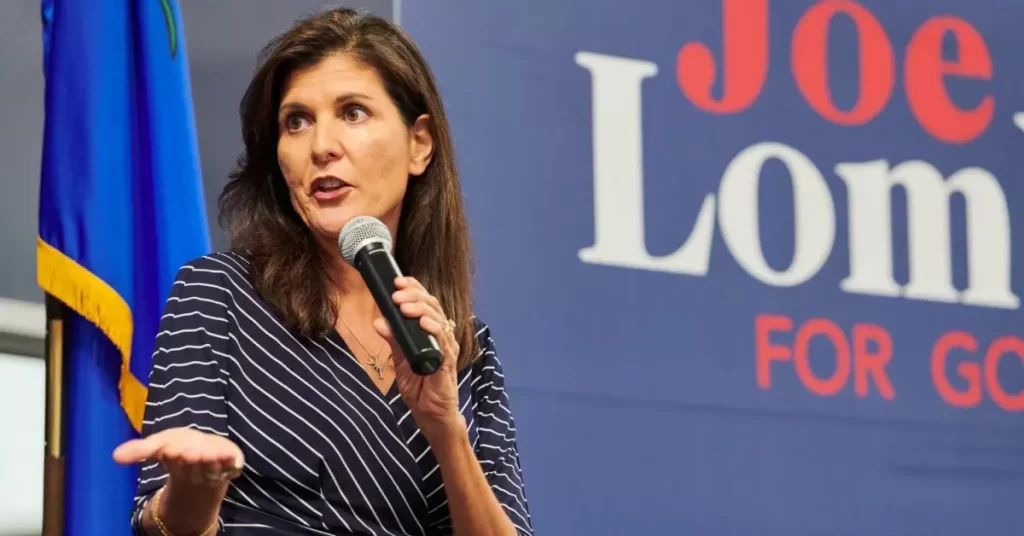Nikki Haley & Vivek Ramaswamy Impact Indian American Voters in Election 2024
In the realm of American politics, a wave of change is surging as Indian Americans take the center stage in the 2024 presidential race. Despite ideological differences, figures like Nikki Haley and Vivek Ramaswamy are captivating attention and sparking discussions among the Indian American community. Their bid for the presidency is more than just a political move; it’s a symbol of empowerment and the evolving dynamics within the nation’s diverse population.
The significance of Indian American involvement in politics is being felt more deeply than ever. Pooja Tanjore, a 22-year-old voter from Ashburn, Virginia, acknowledges that she may not align with the conservative policies advocated by Haley and Ramaswamy. Nevertheless, she appreciates the representation they bring to the political arena. For Indian Americans, the presence of fellow community members in such prominent positions resonates on a personal level. It symbolizes the community’s growing influence and reinforces the idea that they can make a tangible impact through political engagement.
Indian Americans have a history of participating in politics, but the 2024 presidential election seems to herald a new era of prominence. While a few Indian Americans have previously held gubernatorial or congressional roles, none have ascended to the presidency. Vice President Kamala Harris’s groundbreaking position in the office further underscores the significance of representation. As the first woman and the first woman of color to hold the office, she proudly embraces her Indian heritage in the national spotlight.
Now, the spotlight turns to the potential candidacies of Nikki Haley and Vivek Ramaswamy, both of Indian descent. Arun Agarwal, CEO of Nextt, traces his early support for Nikki Haley back to 2004 when Indian representation in politics was scarce. Her story resonated with Agarwal, who saw parallels between his own journey and hers. Both children of immigrants, they aimed to break barriers and rise in their respective careers. Agarwal’s admiration for Haley’s achievements showcases the resonance that Indian Americans feel when seeing their stories reflected in political figures.
A similar sentiment is echoed by Dr. Joseph Chalil, a 50-year-old voter from Lake Worth, Florida. Chalil’s background as a government physician in India before immigrating to the U.S. in 1999 shapes his perspective. He sees in Ramaswamy a candidate who not only represents the Indian American community but also embodies the ethos of hardworking immigrants striving for success. Ramaswamy’s business acumen and fresh approach to politics resonate with Chalil and others who believe in the American dream of building a better life through determination and innovation.
Despite the divergence in policy positions between Haley and Ramaswamy, the common thread that unites them is their shared Indian heritage. Their backgrounds serve as a bridge between two cultures and highlight the multifaceted nature of the Indian American experience. Nikki Haley‘s journey from being the daughter of immigrants to holding prominent positions in U.S. politics resonates deeply within the community. Her assertion that she is “the proud daughter of Indian immigrants” speaks to the powerful intersection of identity and aspiration.
Vivek Ramaswamy’s story, rooted in his parents’ pursuit of excellence through hard work, provides another lens through which Indian Americans can relate. His unapologetic embrace of meritocracy reflects the values instilled by his parents and resonates with those who believe in the American dream. This narrative underscores the cultural values of education and determination that many Indian American families hold dear.
While Indian American representation is a significant milestone, it also sparks debates about identity and belonging. Vikram Mansharamani, a Republican businessman running for a Senate seat, emphasizes that while his background shapes his perspective, he identifies first and foremost as an American. He calls for unity based on shared American ideals rather than identity-driven politics. This sentiment highlights the complexity of navigating dual identities and underscores the idea that a strong sense of national identity can transcend cultural origins.
For Pooja Tanjore, Indian American engagement in politics is not about embracing victim hood but about using their stories to drive positive change. She emphasizes that her generation believes in the importance of individual identities as a means of navigating the world and effecting change. This approach reflects the evolving nature of activism and the desire to create a more inclusive and equitable society.
The presence of Indian American candidates in the GOP field raises pertinent questions about policy alignment and representation. While Tanjore does not foresee herself voting for a Republican candidate, she applauds the growth of the Indian American community’s involvement in politics. This sentiment echoes the sentiment of many Indian Americans who appreciate the choice to participate in the political process while acknowledging differences in policy stances.
In the end, the emergence of Nikki Haley and Vivek Ramaswamy as potential candidates in the 2024 presidential election is a testament to the evolving narrative of Indian American engagement in politics. Their stories embody the values of hard work, determination, and ambition that define the Indian American experience. While they navigate the complexities of representing a diverse community, their presence on the political stage is a milestone that carries both symbolic and substantive significance. The legacy they leave behind will continue to inspire future generations of Indian Americans to actively participate in shaping the nation’s political landscape.



